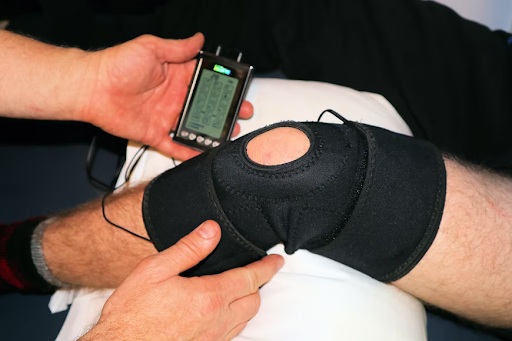Injuries happen, and when they do it’s important to know how to handle them the right way. Whether you were in a car accident, fell down the stairs or had an unfortunate experience with furniture at work, when you’ve been injured it’s important to seek professional medical attention. But there are other steps to take as well-steps that can help make your recovery process easier. Here are eight of the most important steps to take when you’ve been injured.
1 – Seek Medical Attention
The Most Important Step – and not necessarily for the reason you might think. When you’ve been injured, seeing a doctor is good first step-but it’s also important to see if there’s a larger problem that needs attention. If your injury is serious, but not urgent (such as a back or neck injury), then you will want to see your doctor as soon as possible. However, you should also consider seeing your doctor even if your injury is less serious (such as a sprain) because there could be something more complex going on that the initial treatment missed. According to Golden Law Office, injury lawyers, there are all sorts of ways one can get injured. It is important to have a track record of your medical attention and expenses when filing an injury claim.
2 – Be Honest With Your Doctor About All of Your Symptoms
Regardless of whether or not you are feeling pain, it is important to be completely honest with your doctor about any and all symptoms you are experiencing. For instance, fatigue can be a common side effect of injuries, but it can also indicate that something more serious is occurring. If you aren’t being completely honest with your doctor about the pain and/or other symptoms you’re experiencing, it’s possible that you won’t receive the proper treatment.
3 – Get All of the Scans
Once your doctor has assessed your injury and treated it accordingly, you might want to consider getting a scan if you suspect a fracture. Max Health Chiropractic points out that if your doctor suspects a small fracture but doesn’t order an X-ray, it is possible that there are other fractures that will not be detected. The only way to know for sure is to get the best quality scans possible.

4 – Recovery and Temporary Disability Benefits
Depending on the severity of your injuries, you might not be able to go back to work right away. If this is the case, make sure to take advantage of your sick days or other paid time off. You can also create a plan to transition back into work if you are able. Either way, it’s important to have a plan in place. It is also important to remember that you may be entitled to temporary disability benefits, which will offset a part of your lost wages while you are unable to work. If you are receiving temporary disability benefits, then the amount of money that you receive each week is based on your average weekly wage (AWW). This benefit is typically calculated at two-thirds of your AWW. This is an important piece of information because it is often used in injury claims when determining how much you deserve to be compensated.
5 – Contact an Injury Lawyer
Even if you are not planning to file a personal injury claim, it is important to contact an attorney. You might be tempted to handle the accident or injury on your own, but that could mean that you are missing out on important information about the incident. When you work with an experienced attorney, you will have no problem getting all of the necessary information about the incident, which you will need to file a claim. This is also important if you are getting medical treatment, or even if you have to miss work because of your injury. There are various laws that govern injuries, and you might not be aware of them.
Here are a few things an injury lawyer can do for you:
– They can explain the laws to you
– They will prepare all of your documents for court
– They can ensure that your medical bills are paid
– They will help locate all documentation of the incident. Medical reports, witness statements and police reports can be crucial to a personal injury claim.
– They can gather evidence for your case
If, after speaking to an attorney, you decide not to pursue a claim, there are still a few things they can do for you. They can explain the laws to you or recommend an individual who might more than happy to provide those services for you. If your attorney does not have anyone on their roster that can help, then they will point you in the right direction.
6 – Know Your Rights
Regardless of whether or not you want to file a personal injury claim, it is important to know your rights. For instance, if you are filing a claim with your auto insurer, make sure you know what is covered by your policy. If you notice an error on the part of your insurer, then you might want to consider speaking with an attorney about it.
If you need help putting together a plan for handling your injury and its aftermath, it’s important to seek the help of professionals. If you have been in an accident and are unsure about what to do next, contact a medical professional and an attorney as soon as possible. In addition to getting proper treatment, you will also want to speak with a lawyer about your eligibility for claims.
In spite of our best intentions, accidents happen and sometimes we get injured. It is important to know what steps to take next when you or a loved one has been in an accident for the first time–whether it was from falling down the stairs, getting hit by a car on your bike, or experiencing injuries at work. Seeking medical attention and working with an injury attorney can help provide all of the necessary information about how to handle your situation if this should ever happen again.




























